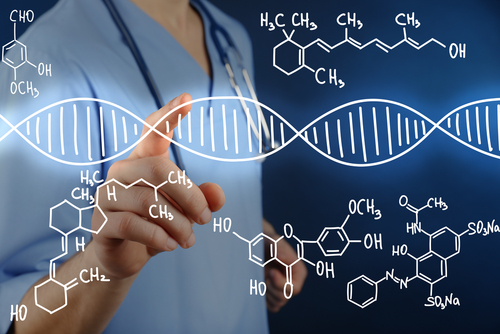A single dose of HMI-102 — a candidate gene therapy for phenylketonuria (PKU) by Homology Medicines — lowered blood levels of phenylalanine and kept this amino acid‘s levels within a normal range over 48 weeks in a mouse model of the disease, a preclinical study reports.
Phenylalanine levels are excessively high, to the point of being toxic, in people with PKU.
Findings were reported in the study, “Sustained Correction of a Murine Model of Phenylketonuria Following a Single Intravenous Administration of AAVHSC15-PAH,” published in the journal Molecular Therapy, Methods, and Clinical Development.
These results support Homology’s current gene therapy program, as well as the company’s ongoing Phase 1/2 pheNIX trial (NCT03952156), which is assessing the safety and efficacy of a single intravenous dose of HMI-102 at reducing blood levels of phenylalanine in adults with PKU, ages 18-55.
The trial is now enrolling up to 21 adults at multiple sites in the U.S. More information about eligibility, clinical sites, and contacts is available here.
During the trial’s first part, up to three ascending doses of HMI-102 will be tested. Homology is planning to provide an update at midyear, once the dose to be used in the study’s second, expansion part of has been selected.
“We developed a robust preclinical data package for our investigational HMI-102 gene therapy, which supported the initiation of our ongoing Phase 1/2 pheNIX clinical trial for adults with PKU,” Albert Seymour, PhD, chief scientific officer of Homology Medicines, said in a press release.
“These published data demonstrated that a single dose of HMI-102 was able to restore the normal biochemical pathway in the established PKU model on normal protein diet,” Seymour said.
PKU is a metabolic disease caused by mutations in the PAH gene that results in the toxic buildup of the amino acid phenylalanine. These mutations prevent or reduce the production of the enzyme phenylalanine hydroxylase (PAH), which converts phenylalanine (Phe) into another amino acid, called tyrosine (Tyr).
Gene therapy has the potential to correct this genetic defect by introducing a fully functional copy of the PAH gene.
This was the approach taken by scientists at Homology, who used the company’s non-infectious version of the adeno-associated virus (AAV) vector, developed from human stem cells and called AAVHSC, to deliver a work copy of the PAH gene to liver cells.
The team used genetically engineered mice (Pahenu2 mice) carrying a mutation in PAH that lowered the enzyme’s activity to 1%. These animals also had some of the typical features of PKU, including high levels of Phe, and low levels of Tyr, in the blood.
Early tests evaluated a different version of the vector, which was used to deliver the genetic construct (AAVHSC15-CBA-PAH) to Pahenu2 mice through a single intravenous administration at various dose levels.
At all doses, mice demonstrated a dose-dependent decrease in Phe levels and a rise in Tyr levels within one week of treatment. The animals’ coat also darkened, which indicated a restoration of the phenylalanine metabolic pathway.
A detailed analysis showed treatment restored the activity of the PAH gene in the liver, and increased the activity of the PAH enzyme to around 20% of the levels seen in healthy mice.
However, in a durability experiment, the highest dose tested led to a sustained Phe reduction for 12 weeks, prompting the team to optimize the therapy to ensure a longer effectiveness.
The optimized version of the therapy — AAVHSC15-PAH (Construct 9), now known as HMI-102 — was given to mice at a dose 10 times lower than the non-optimized version. A single dose of HMI-102 reduced blood levels of Phe within one week, which was sustained over the course of 48 weeks. A corresponding increase in the levels of Tyr was also observed.
Treatment also increased to normal the levels of 5-HIAA — a metabolite whose levels are severely low as a result of PAH deficiency — in the animals’ brain.
In a final test, researchers showed that treatment with HMI-102 restored Phe levels and PAH activity in sick mice in a dose-dependent manner.
“Collectively, these data support the potential of a gene therapy approach for PKU that could reduce Phe to normal levels and substantially restore the natural biological pathway,” the investigators wrote.
“Initial data from the pheNIX trial suggests that the increased PAH enzymatic activity after administration of HMI-102 seen in the preclinical model was also observed in the clinical study,” Seymour added.

